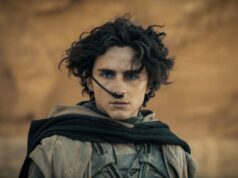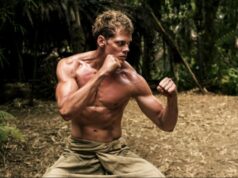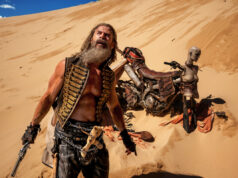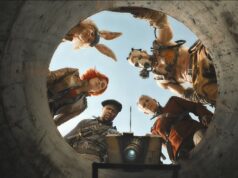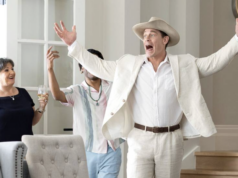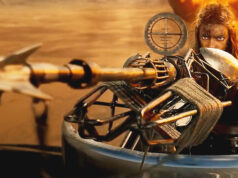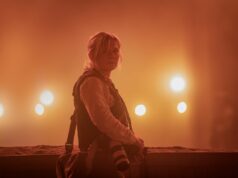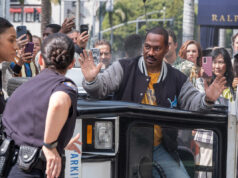Meeting Chiwetel Ejiofor fresh off the back of his Oscar win for the astounding film 12 Years A Slave (2014) was a huge deal. Strangely I expected some huge fan fare announcing his presence as I waited to talk to him about his latest film the powerful Half Of A Yellow Sun adapted from the excellent book of the same name-instead he floated in with all the to do of a monk going to pray.
Half Of A Yellow Sun written by the supreme talent of Chimamanda Ngozi Adichie and adapted by the brilliant playwright and novelist Biyi Bandele stars the beautiful Thandie Newton. It is as Biyi states ‘a love’ story on the back drop of the brutal and vicious civil war in Nigeria, the Biafran War. It’s a moving and profound account that allows Chiwetel to show us why he is a Hollywood A Lister (excuse the cliché).
Here I got to talk with him about the film, his own Nigerian background, his connection to the Biafran War and of course winning that Oscar.
Firstly I wanted to ask about Nollywood and how you see it progressing as an industry?
It is basically a great thing and it will be an even bigger industry in years to come perhaps rivaling Bollywood in terms of reach. There is a lot of diversity in the films but the scale of the budgets and the production skills will evidently grow.
How did it affect you filming in Nigeria?
Well all of the film was made in Nigeria and it was great. We [Biyi Bandele] have talked for years about filming in Nigeria and making a film of a larger budget in Nigeria. I think we were just so excited to shoot in a country that has so much beauty even though we were in a pretty remote part of Nigeria which we had to access by the river The Calabar. It just felt so right to tell the story there and get away from the industrialised areas like Enugu and go to the places where the war was fought-where the Nigerian forces took the war to the villagers to try and break the spirit of the villagers.
Before talking about the film I wanted to ask about your own Nigerian heritage and your own connection to the Biafran War; your uncle Ujokwu?
I met my uncle Ujukwo a little bit before he died because he actually lived just a little way down from my grandfather. I remember I had lunch at my grandfather’s house and we talked about my uncle and what he did. I actually have tapes I made when I spoke to my grandfather about the war. Bi and I listened to the tapes that I had made (some ten hours of tapes) of him talking about his experiences in the Biafran war-these were tapes I had made some six or seven years ago but it was so powerful to listen to this first-hand account of this unstable period of time.
The rigours of war and its effects are delicately and plausibly dealt with in the film.
Civil wars in Africa are slightly abstract and not part of the way European countries perceive conflict and that is because there is a disconnect in understanding African history and geo-politics. I think the film really helped for people who may not have knowledge of the history of the war to understand this tragic war and its place in Nigerian history.
The love between the two main characters is expertly still detailed.
Often in films where war is a central theme the personal lives of the characters stop while the events over take them. In the context of this film and the war these love stories are created in the conflict and war. It was neatly weaved where their lives run parallel and the characters are still learning about each other and falling in love-it felt very true of the war.
Explain a bit about your character Odenigbo whose personal journey is certainly very intriguing.
He is an interesting character and there is plenty not to like about him. He can be morally and ethically challenged but that is what made him so interesting to play-there were just so many layers to him. He is someone who feels he knows everything and he discovers how much he does not know and how much he has to learn and the nature of the value of things. I was fascinated by the journey for this character and I was engaged with sympathy for him. Like anybody he makes mistakes.
Lastly post winning the award what have you learnt?
You learn about the industry in a different way-but you realise that there is no top in the industry really. It might be on a different scale with the media glare but it is still just actors just trying to tell a story and that was humbling to learn.


